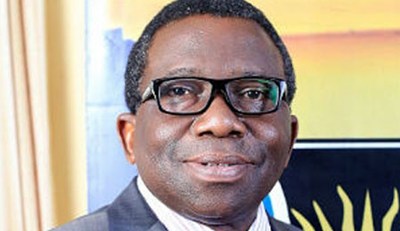The Minister of Health, Prof. Isaac Folorunso Adewole, has called on African Ministers of Health to work together in bringing the Neglected Tropical Diseases into the Health Agenda, create awareness around it and ensure that it is no longer neglected.
The Minister made the call on Monday at the launching of the Expanded Special Project for Elimination of Neglected Tropical Diseases by the World Health Organization Regional Office for Africa at the ongoing World Health Assembly in Geneva, Switzerland.
ESPEN, which is a new partnership to help African countries reduce the burden of NTDs, will provide national NTDs with technical and fundraising support to help them control and eliminate NTDs.
Prof. Adewole, in his statement, said: “NTDs is a disease of the poor and such efforts at reducing the burden must include poverty reduction.”
He therefore called on his colleagues to take ownership of ESPEN, put it at the front burner and bring it under a robust domestic financing.
While acknowledging the dwindling resources globally, he encouraged his colleagues to look into the limited available resources and re-prioritize its activities, work at getting better value for it and make more money available to the programme through prudent allocation of funds to all health related activities.
He said Nigeria will situate NTDs within the Primary Health Centers, which is being revitalized in the country in order to provide Universal Health Coverage to Nigerians.
He added that UHC is one of the flagship projects in the Change Agenda of the President Mohammadu Buhari-led administration in Nigeria.
Earlier, in her opening remarks at the launch, the Secretary General of WHO, Dr. Margaret Chan, pledged the support of the organisation to African governments in moving ESPEN forward.
ESPEN will run from 2016 to 2020 and it is designed to work towards the control and elimination targets established by WHO and endorsed by the London declaration of 2012 on NTDs
In her comments, Dr. Matchidiso Moeti, WHO’s Regional Director for Africa, said the directorate will provide the relevant data, expertise and financial resources required to accelerate the fight against these diseases.
The NTDs are a group of infections that place a constant and heavy burden primarily on the poorest, most vulnerable communities in the world most of which are located in Africa.
These diseases are onchocerciasis, lymphatic filariasis, schistosomiasis, soil-transmitted helminthiasis and trachoma.
It is estimated that more than one billion people, including more than 500 million children, are affected by NTDs, out of which 40 per cent live in the African region and Nigeria accounts for 25 per cent of the African burden.
The NTDs, though can be prevented and treated, yet they continue to disfigure and disable, destroying lives, preventing children from going to school and keeping communities in cycles of poverty.

